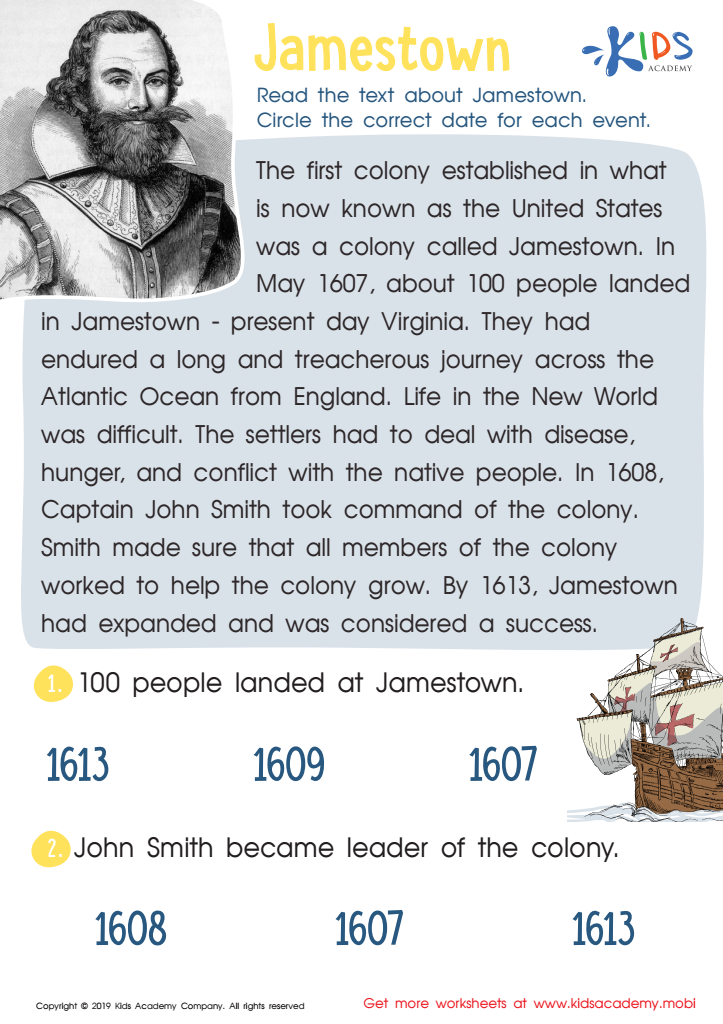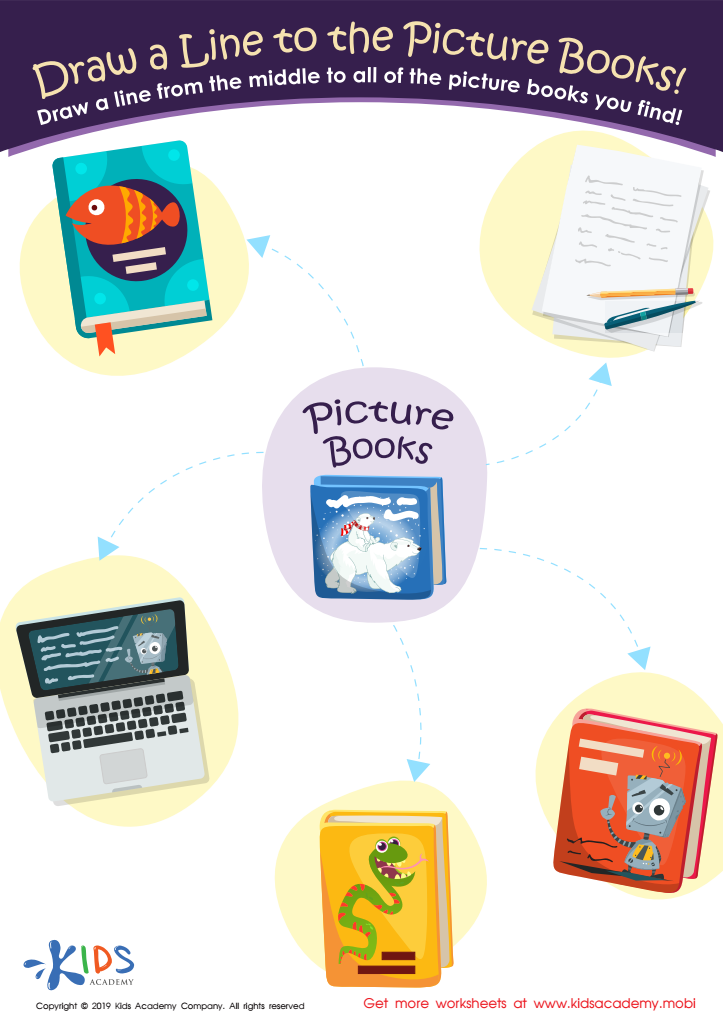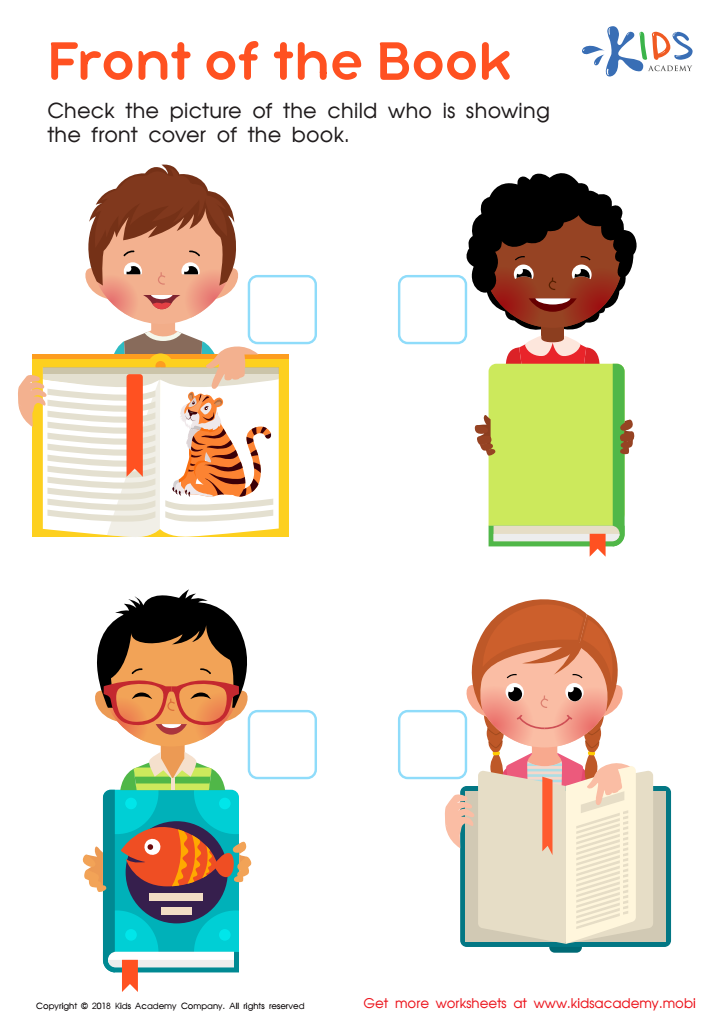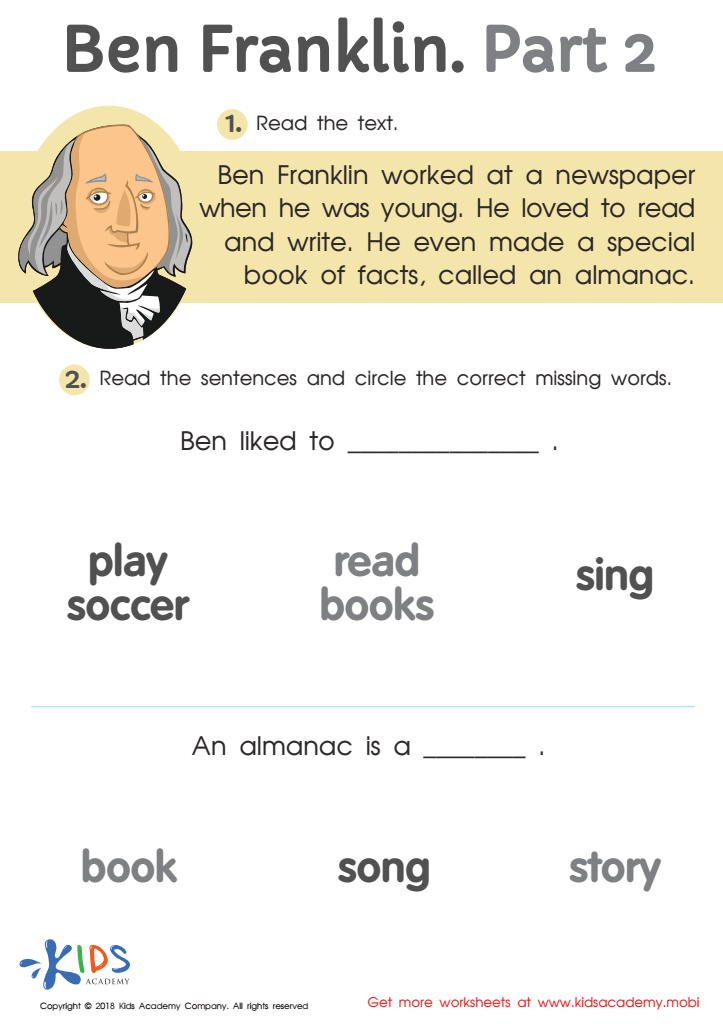Reading Skills Reading Non-Fiction Worksheets for Ages 4-8
4 filtered results
-
From - To
Unlock your child's reading potential with our engaging non-fiction worksheets designed specifically for ages 4-8! These interactive resources foster vital reading skills while introducing young learners to a variety of exciting topics. Our worksheets promote comprehension, vocabulary development, and critical thinking, so your little ones can confidently explore the world around them. Each activity combines fun exercises with real-world knowledge, making learning an enjoyable experience. Ideal for home or classroom use, these worksheets will nurture a love for reading and encourage curiosity in budding scholars. Equip your child with essential literacy skills today and watch them thrive!


Jamestown Worksheet


Draw a Line to the Picture Books Worksheet


Front of the Book Worksheet


Ben Franklin Part 2 Worksheet
Reading non-fiction is vital for children aged 4-8 as it lays the foundation for lifelong learning and curiosity. This age group is at a critical stage where their cognitive abilities expand rapidly, and exposing them to a variety of non-fiction texts helps cultivate essential reading skills. Non-fiction material introduces them to real-world concepts, facts, and information, enhancing their understanding of the environment around them.
Parents and teachers should care about reading skills focused on non-fiction because it teaches children how to interpret and analyze different types of text. This includes understanding charts, graphs, and images that usually accompany factual content, which are essential skills in our information-rich society. Additionally, non-fiction reading fosters vocabulary development, as children encounter new terms and contexts.
Moreover, engaging with non-fiction can inspire a love for subjects like science, history, and geography, sparking curiosity and encouraging independent research. By supporting non-fiction reading, parents and teachers nurture informed, critical thinkers who can approach the world with inquisitiveness and confidence. Overall, prioritizing non-fiction reading in education not only enriches literacy skills but also prepares children for future academic challenges and informed citizenship.
 Assign to My Students
Assign to My Students
















